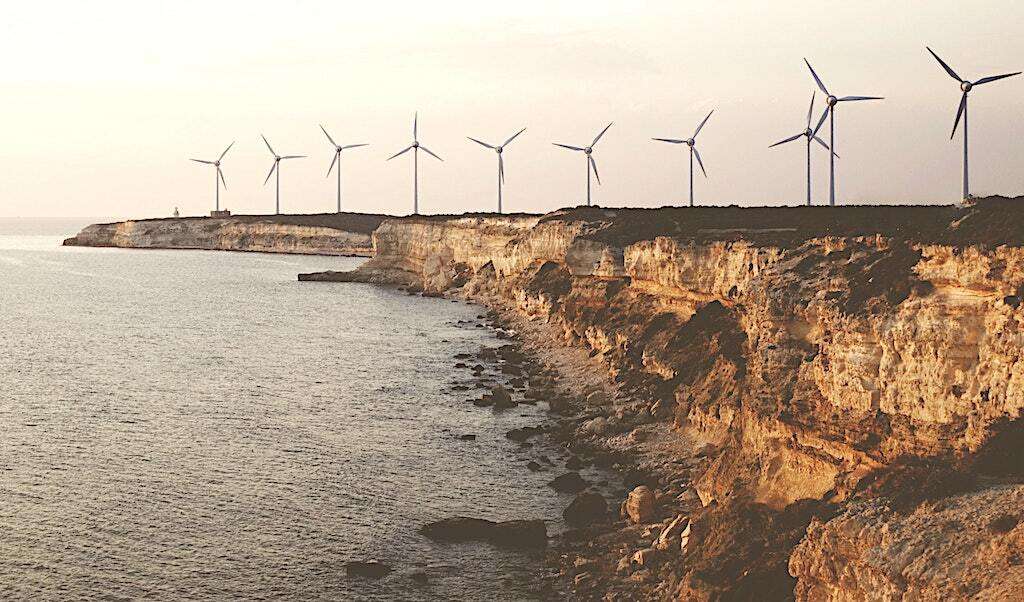What is greenwashing? A new effort in the E.U. aims to promote tangible climate action by defining “greenwashing” in order to enforce penalties on corporations inflating their sustainability credentials.
The clock is ticking in the fight against climate change and necessary steps must be taken to address it, The European Securities and Markets Authority (ESMA) said last year. The watchdog helped develop the E.U.’s definitions for “greenwashing” — the term that’s used to describe marketing and PR spins to make efforts appear more environmentally friendly than they actually are.
E.U. greenwashing
“[T]here is now a real need to address greenwashing without delay, even if all the legislative stepping stones are not fully in place yet,” ESMA said in its sustainability roadmap laid out last year.
According to the ESMA, trillions of euros are being routed into funds that promote climate-friendly or sustainable practices. But the agency says none of these investments are being vetted for over-inflation of credentials. It says defining what constitutes greenwashing will help to quash it.
“Ensuring the consistent and effective application of the E.U. sustainable finance rulebook is key to preventing greenwashing,” ESMA said.

Last week, the European Commission took a step closer to mitigating greenwashing throughout the bloc nations with the launch of the Green Claims Directive, which the Commission says will help clear the E.U. of “unreliable and confusing green marketing,” by establishing criteria for green labeling. The commission says about 75 percent of the products on the E.U. market carry an implicit or explicit green claim but more than half of the claims are “vague, misleading, or unfounded.” Nearly half of the 230 eco-labels available in the E.U. also have “very weak or no verification procedures.”
The new initiative will set minimum rules for companies to back up any green claims. It also prohibits the use of any rating systems that don’t use E.U. rules. Companies will also be required to meet transparency minimums when making sustainability claims and claims will be vetted by third-party agencies such as the E.U.-based Ecolabel.
“The Green Claims Directive is a promising tool to wipe out the misleading claims that muddy the waters of sustainability and make it hard to distinguish between the companies who strive to reduce their impacts and those who just greenwash their products,” Blanca Morales, Senior Coordinator for EU Ecolabel at the European Environmental Bureau , said in a statement. “It is now urgent to crack down on climate-washing claims and to ensure that products containing hazardous substances are not sold as green.”

But the effort is not without challenges. While the initiative targets claims such as “CO2 compensated delivery”, “packaging made of recycled plastic” or “ocean-friendly sunscreen,” it does not regulate other terms including the widely used “carbon neutrality.”
“This proposal is a huge missed opportunity to send a powerful message to corporations that the E.U. is taking corporate climate responsibility seriously,” said Lindsay Otis, a policy expert on global carbon markets at Carbon Market Watch told CNBC.
“The Commission appears to understand the problems created by greenwashing, but refuses to adequately address them,” Otis said. “It is now up to the European Parliament and Council to enact a ban on carbon neutrality claims, because anything short of that will not only fail to protect consumers, but will also fail to push corporations towards truly sustainable practices.”
“Sadly, without harmonised methodologies at the EU level, the new Directive will provide little clarity to consumers and business, and will only complicate the job of market surveillance authorities. Today, most green claims are too good to be true and the proposal is … far from the real (green) deal,” Margaux Le Gallou, programme manager for environmental information and assessment at the non-profit Environmental Coalition on Standards told CNBC.
Renewable energy
The news follows a recent announcement by the E.U. that it would include natural gas and nuclear energy as part of its renewable energy plans — a move that earned the governing body backlash. According to the plan announced last year, some natural gas and nuclear power projects would be classified as green investments.
“Nuclear power is neither ‘green’ nor sustainable,” Austrian Chancellor Karl Nehammer said on Twitter. “I cannot understand the decision of the E.U.”

The E.U. says it’s creating a new list of ESG disclosure requirements for what can be considered sustainable investments. This “E.U. taxonomy”, which is tasked with defining sustainable investments for its climate goals, classified both gas and nuclear as “transitional activities,” according to the Washington Post.
“The inclusion of gas was backed by several member states that said gas is needed as a ‘bridge,’ as countries wean themselves off fossil fuels and build up their renewables capacity,” the Post explained. “France and others pushed for the inclusion of nuclear energy — despite strong opposition from Germany.”
E.U. member countries Austria and Luxembourg say they will sue the commission over what Austrian climate minister Leonore Gewessler called a “cloak and dagger operation.”
Greenpeace also had words for the bloc’s proposal, calling it “anti-science” and a move that “represents the biggest greenwashing exercise of all time.”
In an open letter from a group of investors that include BlackRock and Vanguard, Stephanie Pfeifer, the group’s CEO wrote last year that any inclusion of gas within the Taxonomy would “undermine the E.U.’s ambitions to set the international benchmark for credible, science-based standards for classifying sustainable economic activities.”
“It is our view that the proposals in the draft Complementary Delegated Act would seriously compromise Europe’s status as a global leader in sustainable finance, potentially triggering a ‘race to the bottom’ which could dilute the level of climate ambition within emerging jurisdictional taxonomies.”
Supply chain changes
The plan also comes as a report from Barclays, released last year, found 20 percent of U.K. retailers had severed ties with supplier contracts to the tune of $10 billion last year over the lack of transparency about sustainability efforts or ethical concerns.
“We are seeing a marked acceleration and shift among retailers towards prioritising sustainable and ethical standards in every part of their business operations,” Karen Johnson, Head of Retail and Wholesale, Barclays Corporate Banking, said in a statement accompanying the report. “That is now starting to take its toll on retail suppliers with billions of pounds worth of contracts being cancelled every year.”

It also comes as EcoVadis, a platform that works to help companies across industries improve sustainability metrics, found significant increases across key areas including recycling, and renewable energy, as well as in social areas including diversity training and equality programs.
“Businesses and governments are feeling immense pressure to break down broad commitments into tactical targets and action plans—particularly in the value chain — and start executing and reporting on them,” Pierre-François Thaler, co-founder and co-CEO of EcoVadis, said in a statement.
“Our customers across the network have done tremendous work to achieve these results.”
Companies are spending significantly on earning sustainability ratings, a recent report found. Some companies are are spending up to half a million dollars a year on sustainability ratings “to meet investor demands” but many claim they are often dissatisfied with the results, new research shows.

The report was published by sustainability consulting firm ERM. It found that publicly-listed companies are spending between $220,000 and $480,000 on “ratings-related costs” per year. Private companies are spending up to $425,000.
But despite the high costs for the ratings, the report found that accuracy and transparency were often lacking on data and ratings. Other frustrations include lack of ability to correct errors.
“We know first-hand how crucial ESG ratings are to spurring action on the sustainability agenda and ensuring the highest performing organizations get the recognition and financing they need,” Tom Reichert, ERM Group CEO, said in a statement.
“However our survey shows that the ESG ratings industry is at a crossroads. How raters respond to the pressures they face will determine what the field looks like in the decade to come.
“It is in everyone’s interests to ensure that ESG ratings are transparent, robust, and trusted. We look forward to sharing this report to stimulate new discussions around how we can work together to shape a sustainable investment environment that meets the needs of companies, investors, and raters.”
Related on Ethos:


